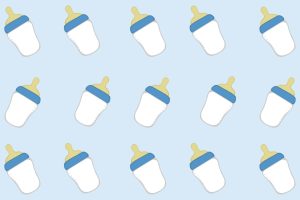Can I Breastfeed in the NICU?

A neonatal intensive care unit, commonly referred to as a NICU, is a special unit in a hospital dedicated to caring for premature or ill newborns. If your baby is admitted to the NICU, depending on your baby’s health and complications, breastfeeding can be challenging, but that doesn’t mean your baby can’t eventually enjoy the benefits of breast milk.
The first consideration about whether your baby can be breastfed in the NICU will be your baby’s medical condition. In higher-level NICUs, some premature babies are unable to be fed at all and will be fed intravenously as they develop and grow stronger. In other cases, babies might have conditions that make breastfeeding impossible but may be able to be fed pumped breast milk via a tube inserted into their stomach. The doctors and nurses in NICU strongly believe in the importance of breast milk and will advise you on how to proceed.
If breastfeeding is a possibility, you should consult with a lactation specialist in conjunction with the specially trained NICU staff. They will be able to coordinate a plan for breastfeeding as a goal.
For babies born close to their gestational full-term, breastfeeding can generally be initiated in the NICU, along with skin-to-skin contact. To help your baby gain weight, your lactation consultant might recommend both breastfeeding and supplementing with pumped breast milk. If you cannot pump for whatever reason, the American Academy of Pediatrics (AAP) suggests using banked human breast milk as a possible alternative.
If your baby might not be coming home for a while, investing in a breast pump or renting one can help new mothers with their milk supply. Your lactation consultant or the NICU nurses can advise you on how often you should pump. You can date the label and store your milk. If it will be a bit longer until your baby is ready to feed, you can freeze breast milk until it’s needed.
Most of all, remember that bringing home a healthy baby is the most important thing. Sometimes breastfeeding is too challenging, given an infant’s condition. So don’t feel bad if you are unable to breastfeed — your baby will be receiving the best care possible in the NICU unit.
Sources:
- Pediatrics, “Breastfeeding and the Use of Human Milk,” Vol
- 115 No
- 2 February 1, 2005, pp
- 496 -506, (doi: 10.1542/peds.2004-2491).
Powered by Bundoo®










